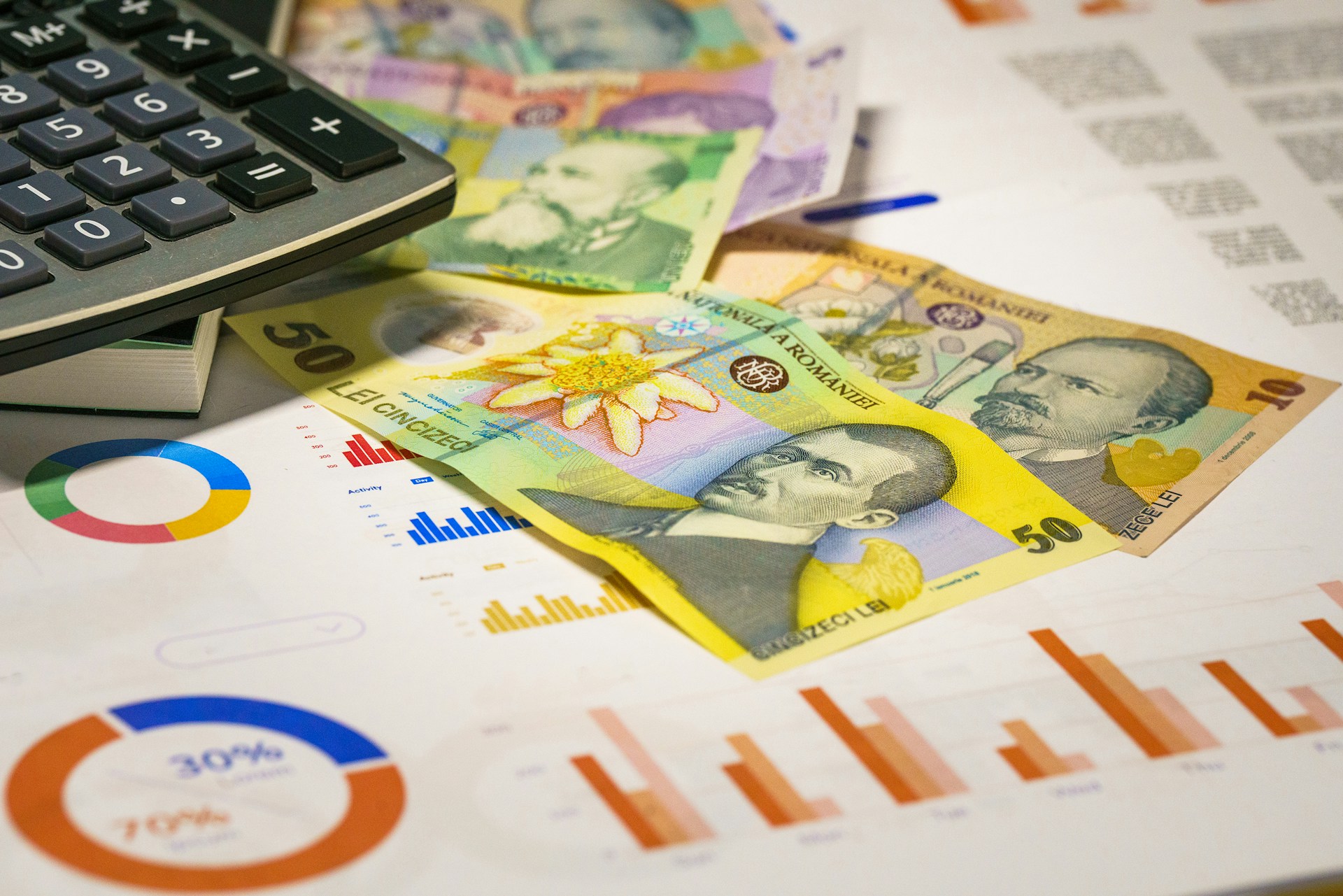From a Dishwasher to a Tech Superstar: The Making of a CEO

Nvidia’s CEO, Jensen Huang has been in the news lately. This is not so unusual considering he sits on top of a company valued in trillions of dollars. Huang’s success is largely due to his early bet on artificial intelligence. His bet paid off, putting Huang on the covered billionaire’s list.
His recent success may trivialize his past as a dishwasher at Denny’s. Yes, you read that correctly. The billion-dollar CEO of Nvidia was once a dishwasher and busboy, and he seemed to love every moment of it. Hold on, there is a lesson here, let’s go back to where it all began.
The American Dream
9-year-old Huang may not have had dreams of leaving his country to the US. It was in the US that Huang went through the very struggles that molded him into who he is today. It started a religious reform institute where Huang learned to bench-press and did as many as a hundred push-ups before bed every night. His uncle had a good intention of sending him over to the institute, believing it was a “prestigious boarding school”, but it was more like a juvenile detention center. According to Huang,
Every student smoked, and I think I was the only boy at the school without a pocketknife
His environment did little to shield him from the relentless bullying and teasing from other students. Which is expected, considering how much Huang stood out from the rest of them. Despite all of this, Huang recollects those moments with fondness saying it helped him develop resilience. At 15, Huang dived into another world that further shaped his mindset when he got a job as a dishwasher at Denny’s. According to him, he did the job very well which is not so surprising since he became the “best dishwasher” at Denny’s.
No task is beneath me, I used to be a dishwasher. I used to clean toilets. I cleaned a lot of toilets. I’ve cleaned more toilets than all of you combined. And some of them you just can’t unsee.
But he wasn’t washing just dishes but toilets as well. His hard work finally paid off and he was promoted to the position of a busboy.
Nvidia - A chip like no other

Many years later, Huang returned to Denny’s but this time, it wasn’t as a dishwasher or busboy but to brainstorm an idea that would one day put him a household name in the world of tech. Huang, Chris Malachowsky, and Curtis Priem brainstormed a business idea they believed would revolutionize computing. And despite having little knowledge of how to start a business, the trio had a wealth of knowledge and experience in chip making. Thanks to this, they knew that general-purpose computing chips had their limitations.
The goal was to make a chip that would fill this void, doing things that could not be done by a normal computer. At the time, few areas demanded above-average computational power. One of these was the gaming sector. Nvidia took advantage of this and soon became famous for its gaming chips. However, the company has found a new cash cow thanks to Huang’s early bet on Artificial Intelligence. The Nvidia chips play a central role in the development of artificial intelligence. And as one writer puts it, Nvidia is the only arms dealer in the ongoing AI war.
PS: Nvidia was first called NVision until Huang and his cofounders realized the name had already been taken by another company that manufactured toilet papers. So they finally settled with Nvidia after the Latin word Invidia meaning envy. (Source: The New Yorker).
Jensen Huang’s Success Secret
Resilience
Huang’s success and rise to fame is yet another proof that there is no overnight success. What we may see and consider to be an overnight success is often years and years of hard work that goes unnoticed. For Huang, you can say that the foundation of his success begins with the institution that almost broke him. It was here Huang developed resilience, an important attribute that will see him through the challenges of running a company. Resilience is defined as the ability to withstand or recover quickly from adversity. Years of bullying had made Huang mentally tough. According to him, “Back then, there wasn’t a counselor to talk to. Back then, you just had to toughen up and move on.”
Humility, Hard Work, Hospitality and Stress Management
Although many will winch at the idea of working in a restaurant, Huang believes it is a good place to kick-start a career. His reasons?
It teaches you humility, it teaches you hard work, it teaches you hospitality.
All three virtues played out in Huang’s favor over the years he has been the CEO of Nvidia. It equally influenced his leadership style which is more hands-on compared to the way most CEOs operate. Although he says he is still working on being a good CEO, Huang’s approach to leadership seems to be very effective, earning him the title of Best CEO by Fortune, The Economist, and Brand Finance according to Nvidia. Apart from humility, hard work, and hospitality, Huang also learned how to manage stress from his early days as a busboy.
I find that I think best when I’m under adversity. My heart rate actually goes down. Anyone who’s dealt with rush hour in a restaurant knows what I’m talking about.
Planning and organizational skills
Huang might have had a wealth of experiences that toughened him up and shaped his character. But he also has other traits that played in his favor. Such as his planning and organizational skills.
I planned my work. I was organized. I was mise en place
Running a company is a huge responsibility. Many important things demand your attention. You need to be good at planning and organizing yourself if you want to remain in control. Otherwise, things will go downhill really fast. Planning and organizing help in identifying and eliminating time-wasting activities, therefore making you more efficient. Huang’s ability to effectively plan and organize his life made it possible for him to excel at his low-level job as a dishwasher and also as the CEO of a trillion-dollar company.
To Recap
A graduate of engineering, Huang’s humble beginnings contributed to his success as a founder and CEO, which is why he advises youngsters to start their first job in a restaurant. His advice will raise eyebrows, but let's take a closer look at it. Aside from his engineering degree, every other skill that made Huang a good fit to run a company can be categorized as soft skills.
Huang developed these skills from the hardships and struggles he faced growing up as a child in the US. But you do not have to be bullied before learning to be resilient; neither do you need to work in a restaurant. But there are few places where you can acquire these soft skills at a young age. Of Course, you can read about it in books, but the practical side of it cannot be acquired through reading. This is why Huang suggested working in a restaurant. His success is proof that soft skills are as relevant as hard skills.
FAQs: From a Dishwasher to a Tech Superstar: The Making of a CEO
Jensen Huang is the co-founder and CEO of Nvidia, a company whose valuation has reached trillions of dollars. He is celebrated for his visionary leadership, early investments in artificial intelligence (AI), and contributions to revolutionizing the tech industry. Under his guidance, Nvidia transitioned from focusing on gaming GPUs to becoming an essential driver of AI technologies.
Jensen Huang moved to the U.S. as a child and faced significant challenges adjusting to his new life. He attended a religious reform institute—mistakenly believed by his family to be a prestigious boarding school—where he developed mental toughness due to relentless bullying. His difficult experiences helped him build resilience, which has been a cornerstone of his success.
Huang's first job was as a dishwasher and busboy at Denny's, where he developed important life skills like humility, hard work, hospitality, and stress management. He excelled in his role, earning recognition as the "best dishwasher." These formative experiences laid the foundation for his strong work ethic and leadership style.
Initially focused on creating high-performance chips for gaming, Nvidia leveraged its expertise to develop groundbreaking chips used in artificial intelligence. Jensen Huang's early investment in AI positioned the company as a critical player in industries ranging from autonomous vehicles to enterprise-grade AI. This transition has made Nvidia a leader in the AI revolution.
Nvidia plays a central role in the AI industry as its GPUs are the backbone of training and deploying AI models. The company's chips are widely used across cloud computing platforms, research institutions, and major corporations. Jensen Huang often refers to Nvidia as the "arms dealer" in the fast-growing AI era.
Huang attributes his success to his resilience, humility, ability to manage stress effectively, and exceptional planning and organizational skills. All of these traits were honed during his challenging upbringing and his early jobs, which taught him to handle adversity and lead with a hands-on approach.
Huang believes the restaurant industry is an excellent place for young people to start their careers because it teaches critical soft skills like humility, hard work, and hospitality. These are universal skills that, according to Huang, translate into any career and can strengthen one's leadership abilities.
Resilience, or the ability to recover quickly from adversity, was key in shaping Huang's mindset and ability to lead Nvidia through challenges. His early struggles, including bullying and menial jobs, equipped him to handle the pressures of running a multi-trillion-dollar corporation and navigating the fast-evolving tech industry.
Nvidia continues to expand its AI capabilities by upgrading global data centers, developing new generative AI supercomputing hardware like the Blackwell-Powered DGX SuperPOD, and collaborating with cloud computing giants such as AWS and Google Cloud. The company also pioneers innovations in networking, enterprise AI, robotics, and other emerging fields.
Jensen Huang's story teaches that success is built on resilience, adaptability, and a strong work ethic. His journey from a dishwasher to a tech CEO underscores the importance of soft skills, humility, and persistence alongside technical expertise. Aspiring entrepreneurs can also learn the value of embracing challenges as opportunities for growth and strategically betting on transformative technologies like AI.

square.jpg)










